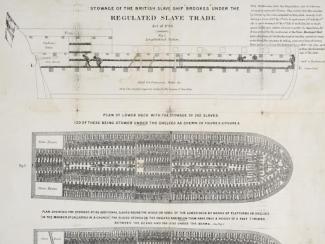
In 1788, abolitionist William Dolben proposed a Slave Trade Regulation Act to limit how many Africans, especially children, could be transported on ships to restrict the trade overall. One ship went from crowding 609 enslaved people to 454.
But something terrible also happened.
Enslavers found a loophole, deciding that teenagers didn’t count as “children.” So, more youth filled the ships. And disturbingly, enslavers then argued the benefits of “breeding” African people instead of buying them.
The lesson here? Regulating a fundamentally inhumane practice will never be as liberating as just ending it. That’s easy to understand in hindsight when talking about slavery. Obviously, no one should be enslaved. But what about other systems?
Today, many draw connections between enslavement and the prison system. But, in the same vein, reforms without the end goal of ending prison don’t get to the root of the problem.
For instance, closing prisons, without reducing incarceration and improving violence prevention, while continuing to build new prisons only relocates the problem. And it isn’t just related to prison.
Across the country, we are cataloged, exploited, and brutalized. There’s deep-rooted anti-Blackness in the housing crisis, the expensive healthcare system, policing in schools, and more.
So, when we remember Dolben’s Act, what can we learn? How do you think we can avoid repeating the mistakes of the past?